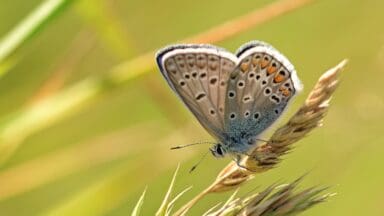
The nationwide citizen science survey, the Big Butterfly Count helps to assess the health of our environment. Counting butterflies can be described as taking the pulse of nature. As key biodiversity indicators for scientists, butterflies react quickly to changes in their environment.
Butterflies are also vital parts of the ecosystem as both pollinators and components of the food chain and as a species, they are sadly also under threat. Numbers of butterflies and moths in the UK have decreased significantly since the 1970s – a warning that cannot be ignored.
The data from the counts help to identify important trends in species that will assist in planning how to protect butterflies from extinction, as well as understanding the effect of climate change on wildlife.
Originally launched in 2010, the count has rapidly become the world’s biggest survey of butterflies. More than 85,000 citizen scientists took part in the 2024 Butterfly Conservation’s Big Butterfly Count, submitting 143,241 Counts.
Sadly 2024, now noted as the worst summer in the Count’s history, revealed that the majority of species (81%) showed declines compared with 2023. The only way to reverse the trend is by learning where and why butterflies are struggling and taking action to save them.
Join the count and make a difference.

